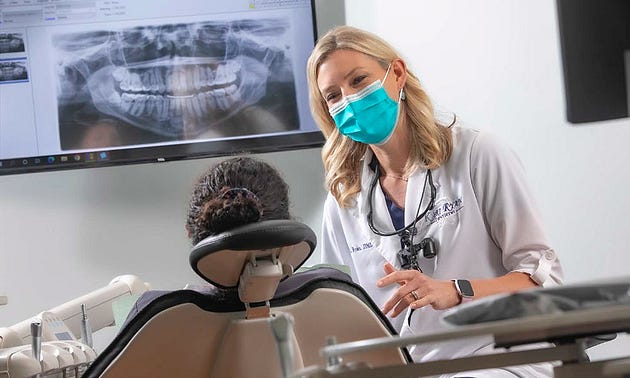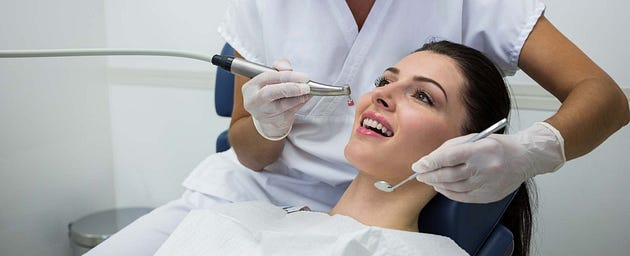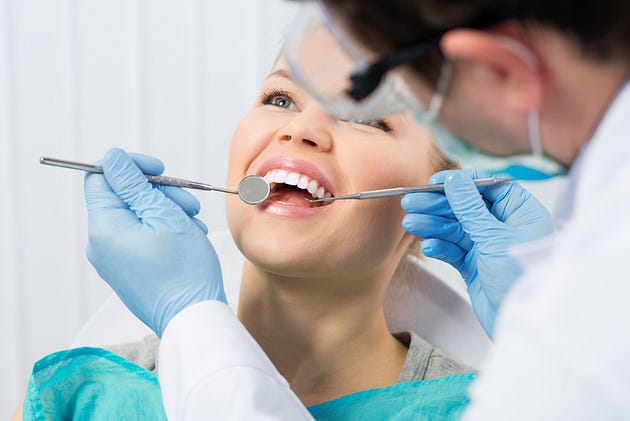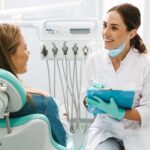Sleep apnea, a serious sleep disorder characterized by repeated interruptions in breathing during sleep, affects millions worldwide. Beyond the disruptive snoring, its implications can range from chronic fatigue and irritability to severe health risks like high blood pressure, heart disease, and stroke. If you suspect you or a loved one might be suffering from sleep apnea, finding the right medical professional is the crucial first step towards regaining restful sleep and improving overall health.
While the term “sleep apnea doctor” might immediately bring to mind pulmonologists or sleep specialists, it’s essential to understand that a multidisciplinary approach often offers the most comprehensive care. This is where dental professionals, specifically those trained in dental sleep medicine, play a surprisingly vital and effective role.

The Landscape of Sleep Apnea Treatment
Traditionally, the primary treatment for obstructive sleep apnea (OSA) has been Continuous Positive Airway Pressure (CPAP) therapy. A CPAP machine delivers a constant stream of air through a mask worn during sleep, keeping the airway open. While highly effective, CPAP can be challenging for some individuals to tolerate due to discomfort, claustrophobia, or noise.
Fortunately, the field of sleep medicine has evolved, offering a broader spectrum of treatment options. These include:
- Lifestyle Modifications: For mild cases, or as an adjunct to other treatments, changes like weight loss, avoiding alcohol and sedatives before bed, and sleeping on your side can significantly help.
- Oral Appliances (OAs): These custom-fitted devices, resembling mouthguards, are worn during sleep to reposition the jaw or tongue, preventing airway collapse. This is where dentists with specialized training become indispensable.
- Orofacial Therapy: Exercises designed to strengthen the muscles of the mouth and throat can improve airway stability.
- Surgical Interventions: In certain cases, surgical procedures to remove excess tissue, advance the jaw, or stimulate nerves can be considered, especially for severe sleep apnea or when other treatments have failed.
- Newer Technologies: Devices like hypoglossal nerve stimulators offer advanced solutions for those who cannot tolerate CPAP.
The Indispensable Role of Your Dentist in Sleep Apnea Treatment
You might be wondering, “Why would I see a dentist for a breathing disorder?” The answer lies in the anatomy of your oral cavity and its direct impact on your airway. Dentists are experts in the structure of your jaw, teeth, and soft tissues, all of which can contribute to or alleviate airway obstruction during sleep.
Specifically, dentists trained in dental sleep medicine are equipped to:
- Identify Risk Factors: During routine dental check-ups, a dentist might observe signs like a narrow palate, recessed jaw, or enlarged tongue, which can be indicators of sleep apnea. They can also discuss symptoms you or your partner might have noticed, such as loud snoring, gasping for air, or daytime fatigue.
- Collaborate with Medical Specialists: While a dentist cannot diagnose sleep apnea (which requires a sleep study conducted by a medical doctor), they can work in close conjunction with pulmonologists, ENT specialists, and sleep physicians. Often, a medical doctor will diagnose sleep apnea and then refer patients to a qualified dentist for oral appliance therapy.

- Provide Oral Appliance Therapy (OAT): For many patients with mild to moderate obstructive sleep apnea, or those who cannot tolerate CPAP, custom-fitted oral appliances are a highly effective, non-invasive treatment. These appliances gently reposition the lower jaw and/or tongue forward, preventing them from collapsing backward and blocking the airway. A dentist will take precise impressions of your teeth to create a comfortable and effective device tailored to your unique oral anatomy.
- Manage and Adjust Appliances: The journey with an oral appliance doesn’t end after the initial fitting. Regular follow-up appointments with your dentist are crucial to monitor your progress, make necessary adjustments to the appliance for optimal comfort and effectiveness, and ensure the long-term success of the treatment. They also monitor for any potential side effects, such as changes in bite or jaw discomfort, which can typically be managed with adjustments.
- Offer CPAP Alternatives: For individuals who struggle with CPAP adherence, oral appliances present a portable, quiet, and often more comfortable alternative, leading to higher patient compliance rates and better treatment outcomes.
Finding a Sleep Apnea Doctor Near You — Including Your Dentist!
When you search for a sleep apnea doctor near me, remember to broaden your search to include dental professionals specializing in sleep medicine. Here’s how to approach it:
- Start with Your Primary Care Physician: Discuss your symptoms with your family doctor. They can provide an initial assessment, rule out other conditions, and refer you to a sleep specialist for a formal diagnosis via a sleep study.
- Consult a Sleep Specialist or Pulmonologist: These medical professionals are experts in diagnosing and managing sleep disorders, including prescribing CPAP therapy or other medical interventions.
- Seek Out a Dentist Specializing in Dental Sleep Medicine: This is a crucial step if you’re looking for oral appliance therapy. Many dental practices now offer this specialized service. Look for dentists who highlight their expertise in “dental sleep medicine,” “snoring and sleep apnea treatment,” or “oral appliance therapy.”

At Mt Pleasant Dentist, we understand the profound impact that sleep apnea can have on your health and quality of life. We are dedicated to providing comprehensive dental care, and this includes offering effective solutions for sleep apnea through custom-fitted oral appliances. Our team works closely with medical sleep specialists to ensure you receive integrated and holistic care, helping you breathe easier and sleep sounder.
Don’t let disrupted sleep dictate your life. If you suspect sleep apnea, reach out to your healthcare provider. And for those seeking effective, comfortable alternatives to traditional CPAP, or simply exploring all available options, consider the significant role a qualified dentist can play. Visit us at Mt Pleasant Dentist to learn more about how we can help you achieve the restorative sleep you deserve.

